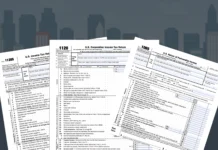Is your new business paying close attention to cash flow? This sometimes-underestimated component of your business could be responsible for its success or failure. If you don’t understand its importance, or how it works, it could end up burning you.
You’ve heard the saying cash is king, and according to BridgepointConsulting.com, there’s significant meaning behind it. Available cash is liquid, meaning you can use it flexibly for a wide range of business needs. Cash can pay your vendor invoices, supply paychecks to your employees, and help you invest in new manufacturing equipment. And if you have a continuous flow of cash positively coming in, you can rest assured your cash reserves won’t be depleted.
So what happens if you have negative cash flow?
The Effects of Bad Cash Flow

If you don’t have enough cash coming in, or if you drain your cash reserves too quickly, you’ll experience negative cash flow. But what exactly does this mean, and why is it such a bad thing for your business?
Negative cash flow, in the short term, is any period when you had more outgoing money than incoming money. For example, you might have $15,000 in expenses, but only $3,000 in revenue. Over time, this is going to deplete the money available to your business. If it gets extreme enough, your business can go bankrupt—or force you to start selling off your most valuable assets.
This is especially problematic, and dangerous, because bad cash flow can wreck a business even if it’s profitable on paper. For example, you might be invoicing your clients for an amount that exceeds your expenses, but if you aren’t claiming that money, or if you’re spending money so quickly your revenue can’t keep up, your business can still fail.
Keeping a Positive Cash Flow

So what steps can your business take to maintain a positive cash flow throughout its life?
- Put someone in charge. Your first line of defense is putting someone “in charge” of monitoring your cash flow. Most businesses that run out of money end up doing it without realizing it, but if you have someone actively watching for this threat, you’ll be able to identify it and take action before it’s too late. Designate one or more people in your accounting department to be responsible for managing cash flow.
- Develop a consistent invoicing and follow-up process. New business owners, sole proprietorships, and other scenarios driven by inexperience or disorganization can all have trouble remembering to send invoices on time, or documenting those invoices. Your business needs to have some kind of formal, officially documented system in place; you need to send invoices in a certain way, at the same time for all your clients, and in a way that allows you to follow up when those invoices aren’t paid. If your client doesn’t pay you on time, it’s important to have some kind of follow-up procedure in place. Reach out politely but firmly via email, then proceed to call if you don’t hear back from them. Continue escalating the situation gradually and professionally until you get the payments you need.

- Set strict but fair terms for your invoices. You’ll need to assign terms to your invoices—these are basically a “due date” that your clients will need to follow. For new clients, start out with something like net-15 terms, which require payment within 15 days of being sent. As you build trust, you may consider relaxing these to net-30 terms. However, your business benefits from being paid as early as possible.
- Delay any payments you can. Similarly, your business’s cash flow benefits from delaying payments as long as possible. Simple choices, like waiting until the due date to pay your electric bill, or waiting the full 15 days to pay a net-15 invoice without penalty, can keep cash in your hands for longer. This is especially important for a new startup, where cash will be necessarily tight for several months, if not the first few years.
- Open a line of credit. If you’re concerned about your ability to keep up with payments while trying to establish a consistent line of revenue, consider getting an open line of credit for your business. Lines of credit function almost like a floating, ongoing loan; you can call on it when you need cash immediately and pay it back once you acquire it.
Cash flow is an important part of your business and one that could spell your business’s demise if you aren’t giving it your full attention. However, even the most basic strategies can help you avert a cash flow crisis. Take cash flow seriously in your business, and incorporate









